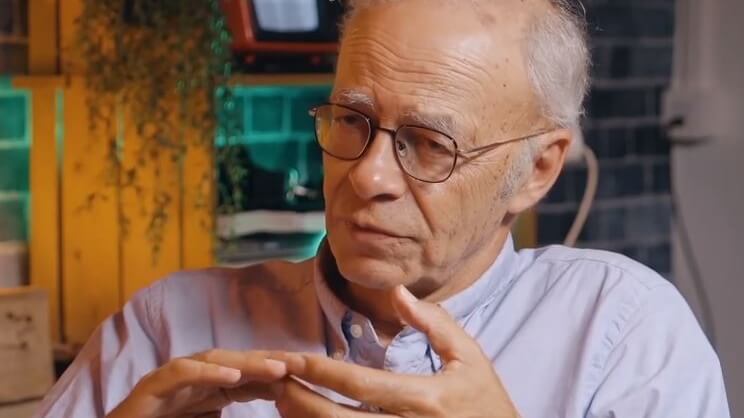Discussing vegetarianism in school can impact student behavior outside of the classroom, says a recent study.
The study looked at more than 1100 undergraduates at the University of California, Riverside.
Researchers — led by Eric Schwitzgebel, Bradford Cokelet, and philosopher Peter Singer — asked half of the students to read a philosophy article in support of vegetarianism. After this, they participated in a group discussion and then watched an optional advocacy video.
Researchers placed the rest of the students in the control group. They were given the same scenario, but instead of meat-eating, the focus was charitable giving.
Researchers gave the students a questionnaire a few days after their seminars. Nearly 30 percent of the control group said they agreed that “eating the meat of factory-farmed animals is unethical.” In the vegetarianism group, 43 percent of participants said they agreed with the statement.
Outside of the classroom, the study authors looked at the dining purchases for 476 students. For the charitable giving group, 52 percent of their campus food purchases included meat before and after the session.
For those who had participated in the seminar on vegetarianism, meat purchases declined from 52 percent to 45 percent.

Teaching Meat Ethics in Schools
The study suggests that potentially, the more the ethics surrounding meat consumption is discussed in the classroom, the more conscious food decisions are made by students in their everyday life.
Singer — an Australian moral philosopher and professor of bioethics — believes students should start learning about the reality of the meat industry from an early age. He suggested that even kindergarteners could start learning about the ethics surrounding killing animals for food.
Singer told LIVEKINDLY, “If it is done in an appropriate way, the fact that the animals’ many people eat are kept in cruel ways can be discussed very early, say at three or four.”
He explained that teachers should start by sharing information about animal agriculture. They should raise questions about the treatment of animals and ask students for their thoughts.
He said, “teaching is not indoctrinating. Students must be encouraged to think critically about our society’s attitudes to animals.” He added, “they should also be free to argue against vegetarianism and veganism.”
Why Do Humans Eat Meat?
According to Singer, people eat meat because their desire to do so “overpowers their reasoning capacities and empathy for other sentient beings.” He added that “it’s a common phenomenon.”
“Jonathan Haidt writes about it in ‘The Righteous Mind,’” he explains. “Although I think he somewhat overstates his thesis… I’m sure something like what he describes happens in the case of eating meat.”
The Righteous Mind evaluates how society has evolved to live in moral matrices, which “bind us together around sacred values and then blind us to the truth.”
According to Singer, from an early age, humans “focus their love for animals on only some animals, the ones we do not eat.”
Dr. Melanie Joy calls this carnism. Joy is the founder and president of the US-based organization Beyond Carnism. According to its website, “carnism is the invisible belief system, or ideology, that conditions people to eat certain animals.”

‘People Rarely Realize Eating Animals is a Choice’
“Because carnism is invisible, people rarely realize that eating animals is a choice, rather than a given. In meat-eating cultures around the world, people typically don’t think about why they eat certain animals but not others, or why they eat any animals at all,” it continues.
“But when eating animals is not a necessity, which is the case for many people in the world today, then it is a choice — and choices always stem from beliefs.”
Through research, presentations, videos, and its Center for Effective Vegan Advocacy, Beyond Carnism is trying to dismantle the dominant way of thinking about food.
Through knowledge, there is power. The more information children — and indeed adults — have about our food system and how it works, the more capable they are of challenging it. They can begin to make changes in their personal lives that positively impact the planet and our fellow living beings.
Beyond Carnism explains, “Carnistic defenses are both powerful and fragile. They have a powerful impact on us when we are unaware of them, but they lose much of their power when they are made visible. So when we recognize carnistic defenses, we are able to make food choices that reflect what we authentically think and feel, rather than what we have been taught to think and feel.”


